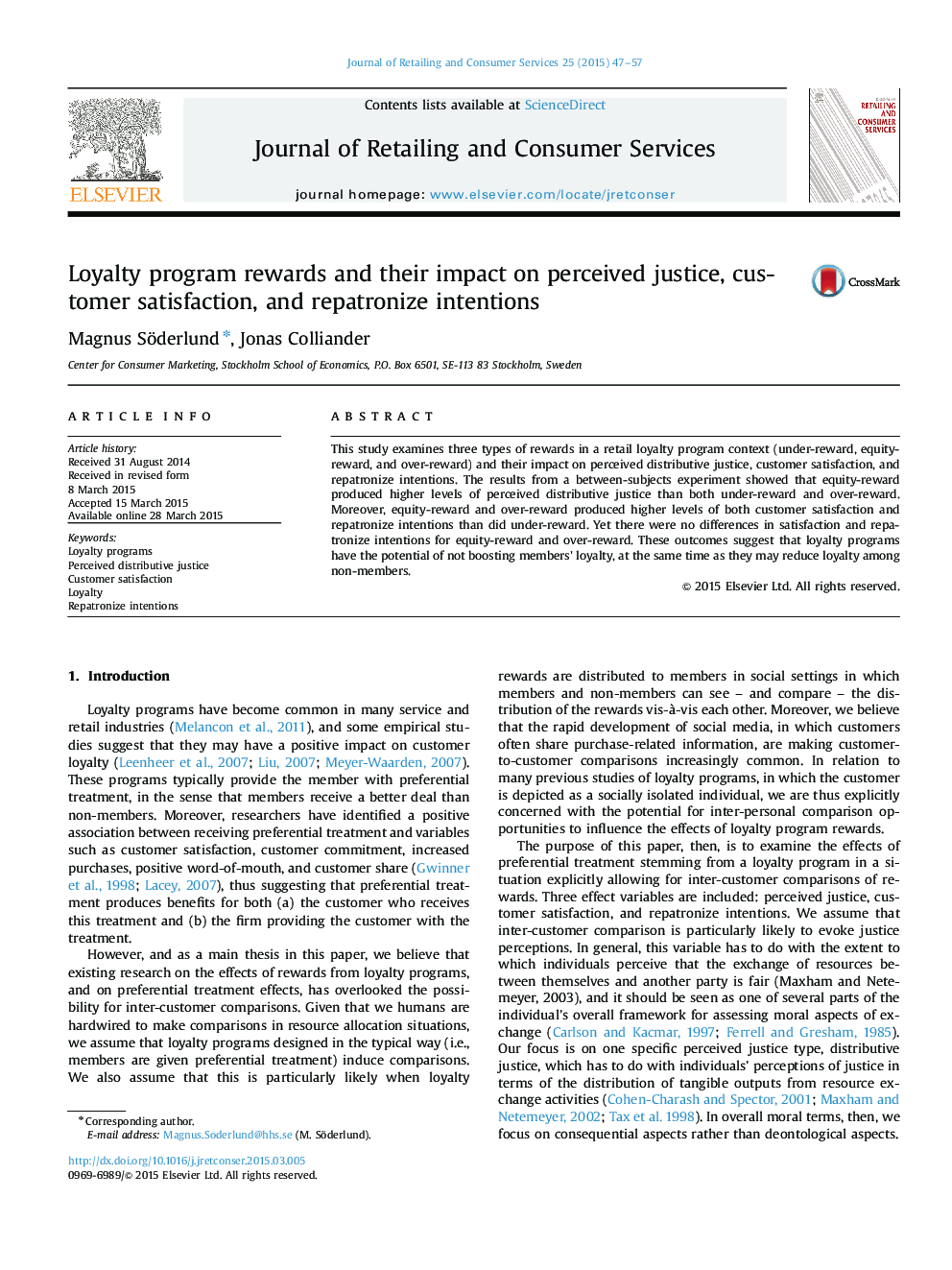| Article ID | Journal | Published Year | Pages | File Type |
|---|---|---|---|---|
| 1028799 | Journal of Retailing and Consumer Services | 2015 | 11 Pages |
•This study examines rewards in a retail loyalty program context and their impact on perceived distributional justice, customer satisfaction, and repatronizing intentions.•The results indicate that rewards had an impact on each of the three effect variables.•The results suggest that loyalty programs have the potential of not boosting members' loyalty, at the same time as they may reduce loyalty among non-members.
This study examines three types of rewards in a retail loyalty program context (under-reward, equity-reward, and over-reward) and their impact on perceived distributive justice, customer satisfaction, and repatronize intentions. The results from a between-subjects experiment showed that equity-reward produced higher levels of perceived distributive justice than both under-reward and over-reward. Moreover, equity-reward and over-reward produced higher levels of both customer satisfaction and repatronize intentions than did under-reward. Yet there were no differences in satisfaction and repatronize intentions for equity-reward and over-reward. These outcomes suggest that loyalty programs have the potential of not boosting members' loyalty, at the same time as they may reduce loyalty among non-members.
